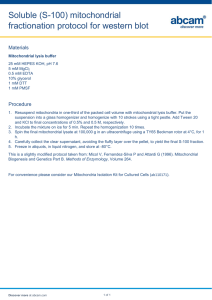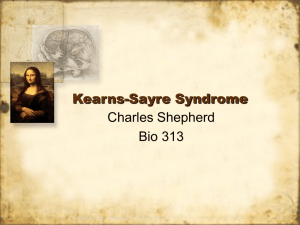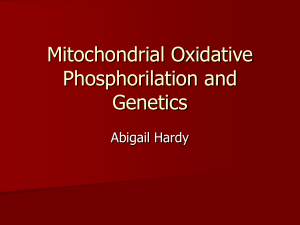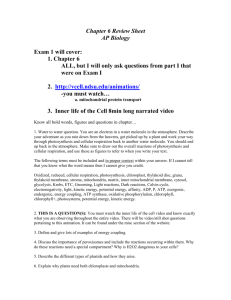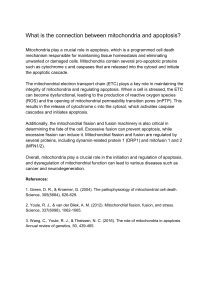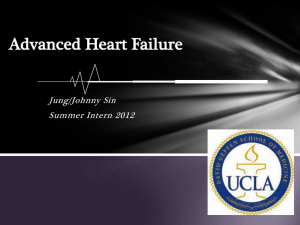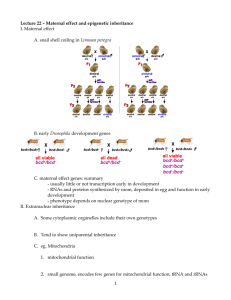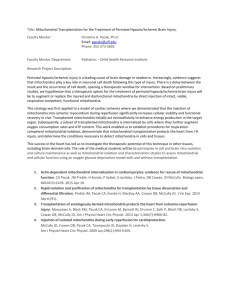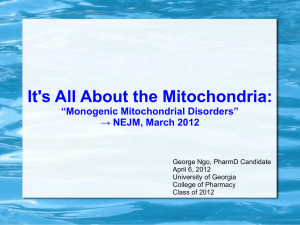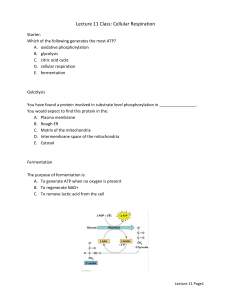The Structure of Mitochondria
advertisement
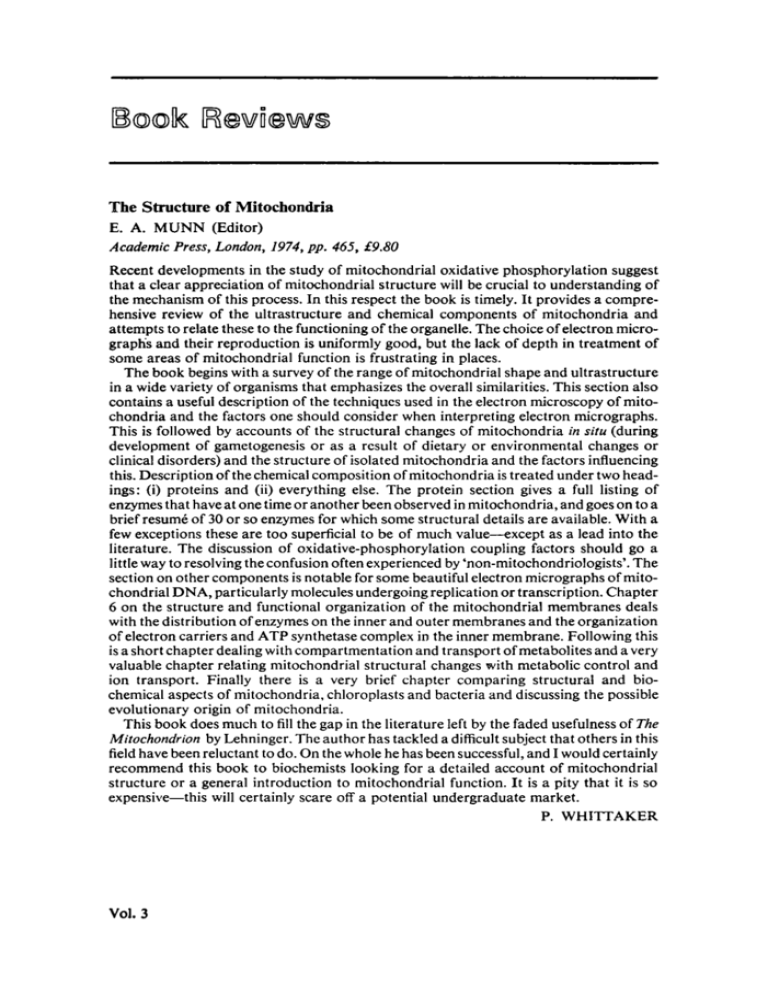
The Structure of Mitochondria E. A. MUNN (Editor) Academic Press, London, 1974, pp. 465, €9.80 Recent developments in the study of mitochondrial oxidative phosphorylation suggest that a clear appreciation of mitochondrial structure will be crucial to understanding of the mechanism of this process. In this respect the book is timely. It provides a comprehensive review of the ultrastructure and chemical components of mitochondria and attempts to relate these to the functioning of the organelle. The choice of electron micrographs and their reproduction is uniformly good, but the lack of depth in treatment of some areas of mitochondrial function is frustrating in places. The book begins with a survey of the range of mitochondrial shape and ultrastructure in a wide variety of organisms that emphasizes the overall similarities. This section also contains a useful description of the techniques used in the electron microscopy of mitochondria and the factors one should consider when interpreting electron micrographs. This is followed by accounts of the structural changes of mitochondria in situ (during development of gametogenesis or as a result of dietary or environmental changes or clinical disorders) and the structure of isolated mitochondria and the factors influencing this. Description of the chemical composition of mitochondria is treated under two headings: (i) proteins and (ii) everything else. The protein section gives a full listing of enzymes that haveat one time or another been observed in mitochondria, and goes on to a brief resume of 30 or so enzymes for which some structural details are available. With a few exceptions these are too superficial to be of much value-except as a lead into the literature. The discussion of oxidative-phosphorylation coupling factors should go a little way to resolving the confusion often experienced by ‘non-mitochondriologists’. The section on other components is notable for some beautiful electron micrographs of mitochondrial DNA, particularly molecules undergoing replication or transcription. Chapter 6 on the structure and functional organization of the mitochondrial membranes deals with the distribution of enzymes on the inner and outer membranes and the organization of electron carriers and ATP synthetase complex in the inner membrane. Following this is a short chapter dealing with compartmentation and transport of metabolites and avery valuable chapter relating mitochondria1 structural changes with metabolic control and ion transport. Finally there is a very brief chapter comparing structural and biochemical aspects of mitochondria, chloroplasts and bacteria and discussing the possible evolutionary origin of mitochondria. This book does much to fill the gap in the literature left by the faded usefulness of The Mitochondrion by Lehninger. The author has tackled a difficult subject that others in this field have been reluctant to do. On the whole he has been successful, and I would certainly recommend this book to biochemists looking for a detailed account of mitochondrial structure or a general introduction to mitochondrial function. It is a pity that it is so expensive-this will certainly scare off a potential undergraduate market. P. WHITTAKER Vol. 3
